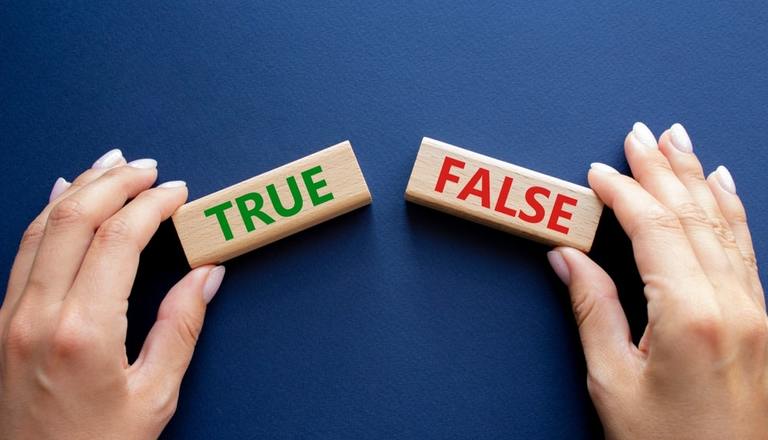
Here we debunk some of the most persistent lottery myths
There are a lot of lottery myths out there that have been around for a very long time, with a plethora of myths and misconceptions that can lead players astray. So let’s delve into the most common lottery myths and separate pure fact from pure fiction.
Myth: Lottery Numbers Can Be Predicted
One of the most enduring lottery myths is that certain numbers are more likely to be drawn than others. Some players believe that by analyzing past results, they can identify patterns and predict future winners. However, this is simply not true. Lottery draws are designed to be truly random, with each number having an equal chance of being selected. The odds of winning remain the same for every draw, regardless of past results. In fact, studies have shown that truly random events, like lottery draws, exhibit a phenomenon known as the "law of the iterated logarithm," which states that even seemingly patterns will eventually break down over time.
Myth: Certain Numbers Are "Hot" or "Cold"
Another myth claims that certain numbers are "hot" or "cold," meaning they're more or less likely to be drawn based on their recent performance. This myth likely stems from the gambler's fallacy, which assumes that past results influence future outcomes. In reality, each lottery draw is an independent event, and the probability of a number being drawn remains the same. A number that has been drawn frequently in the past is no more or less likely to be drawn again than one that has been absent for a while.
Myth: You're More Likely to Win with Quick Picks
Some players believe that using Quick Picks, the random number generator offered by most lotteries, increases their chances of winning. However, this is simply a matter of convenience, not probability. Quick Picks use the same random number generation algorithms as the lottery's drawing process. The odds of winning remain the same, whether you choose your numbers manually or use Quick Picks.
Myth: Joining a Lottery Pool Increases Your Chances
Joining a lottery pool, where multiple players combine resources to purchase more tickets, can seem like a smart strategy. However, while pooling resources may increase the overall number of tickets purchased, it doesn't improve individual odds. Each player's share of the winnings is proportionate to their contribution, so the overall payout remains the same. In fact, splitting winnings among multiple players can lead to smaller individual payouts and potential disputes.
Myth: You're Due for a Win
The "overdue" myth suggests that if you've been playing the same numbers for a long time without winning, you're due for a victory. This thinking is based on the misconception that past results influence future outcomes. In reality, each draw is an independent event, and the probability of winning remains the same. There's no such thing as being "due" for a win.
Myth: Lottery Winners Are Unhappy and Financially Irresponsible
Media coverage often focuses on lottery winners who squander their fortunes or experience personal turmoil, deemed the Lottery Curse. However, research suggests that most winners are responsible with their winnings and experience improved overall well-being. A study by the University of Kentucky found that 85% of lottery winners reported being "very happy" or "extremely happy" with their lives, compared to 44% of non-winners. Additionally, most winners reported using their winnings to pay off debts, invest, and support family and friends.
Myth: You Should Use Birthdays and Anniversaries
Using significant dates, like birthdays and anniversaries, is a popular strategy, but it's based on flawed thinking. These numbers are often over-represented in lottery pools, which means sharing winnings with multiple players if you do win. Additionally, limiting yourself to significant dates reduces the pool of available numbers, making it less likely you'll choose the winning combination.
Myth: Some Lotteries Are "Easier" to Win Than Others
Players often believe that certain lotteries, like smaller regional games, offer better odds than larger national games. While the odds may appear more favourable, the payouts are typically smaller.
By dispelling these myths, you can now play the lottery with a better understanding of the real facts of how the lottery works,
